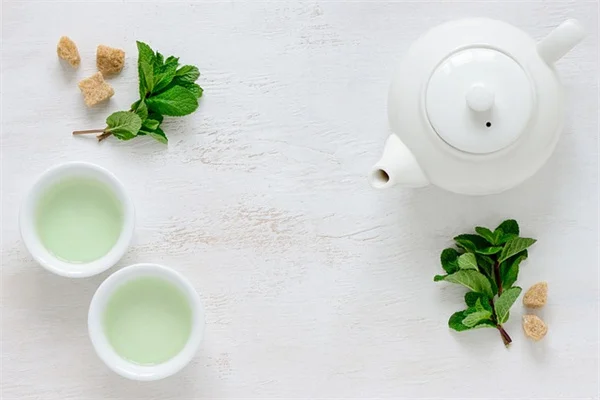Advertisement
Can lifestyle changes really lower your cancer risk? The answer is absolutely yes! New research shows that modifiable lifestyle factors like diet and exercise can reduce your cancer risk by up to 30%. I've been following this research closely, and the results are too important to ignore - simple daily choices about what you eat and how you move can significantly impact your long-term health.Here's what you need to know: a major UK study tracking nearly 100,000 people found that for every healthy habit adopted, participants saw their cancer risk drop by 7%. That means small changes like cutting out sugary drinks or adding more vegetables to your meals can make a real difference. The best part? You don't need to overhaul your entire life overnight - even making one or two positive changes can start reducing your risk today.
E.g. :Nestlé's Vital Pursuit: 5 Things GLP-1 Users Need to Know About These Frozen Meals
- 1、Your Daily Choices Matter More Than You Think
- 2、The Science Behind the Recommendations
- 3、Making Changes That Actually Stick
- 4、Beyond the Basics: Unexpected Cancer Fighters
- 5、Putting It All Together
- 6、Beyond the Study: Everyday Superpowers You Didn't Know You Had
- 7、Your Environment: The Silent Health Partner
- 8、Mental Health: The Missing Piece
- 9、Tech Tools That Actually Help
- 10、FAQs
Your Daily Choices Matter More Than You Think
The Power of Small Changes
Did you know that your morning soda habit could be affecting more than just your waistline? Recent research shows that simple lifestyle tweaks - like swapping that sugary drink for water - can significantly lower your cancer risk. I'm talking about real, measurable differences that add up over time.
The study from Newcastle University tracked nearly 95,000 people for eight years, and here's what blew my mind: for every healthy habit participants adopted, their overall cancer risk dropped by 7%. That's like getting a 7% discount on your health insurance just for choosing an apple instead of a candy bar! When we look at specific cancers, the benefits get even more impressive - we're talking up to 30% lower risk for gallbladder cancer.
Why Your Grocery List Matters
Let me ask you something: when was the last time you checked what's really in your processed foods? The research highlights how limiting processed meats and sugary drinks makes a bigger difference than most people realize. It's not about perfection - it's about progress.
Here's a quick comparison of how different lifestyle changes stack up:
| Lifestyle Change | Average Risk Reduction |
|---|---|
| Cutting sugary drinks | 7% |
| Eating more vegetables | 10% |
| Regular exercise | 12% |
| Maintaining healthy weight | 15% |
The Science Behind the Recommendations
 Photos provided by pixabay
Photos provided by pixabay
How Researchers Tracked the Benefits
The UK Biobank study used a clever point system to measure healthy habits. Imagine getting gold stars like in elementary school, but instead of stickers, you get percentage points off your cancer risk. Participants earned points for things like maintaining a healthy weight or limiting alcohol - simple concepts, but powerful when put into action.
What surprised me most? The people who scored highest (4.5-7 points) had a whopping 16% lower overall cancer risk compared to those with few healthy habits. That's like turning back your biological clock several years!
Breaking Down the Cancer Prevention Playbook
You might be wondering: "Do I really need to overhaul my entire life to see benefits?" Absolutely not! The researchers found that even improving in just one or two areas made a measurable difference. Here's the complete list of recommendations that scored points in the study:
- Keep your weight in a healthy range (no crash diets needed!)
- Move your body regularly - dancing counts!
- Fill half your plate with colorful fruits and veggies
- Say "see ya later" to processed meats and sugary snacks
- Skip the soda aisle completely
- Enjoy alcohol in moderation (if at all)
- Get nutrients from food, not supplements
Making Changes That Actually Stick
The One-Habit-at-a-Time Approach
Stanford oncology professor Dr. Schapira shared some wisdom that changed how I view health changes: "Focus on one thing instead of trying to change everything at once." This might mean starting with something simple like adding a vegetable to every meal before tackling bigger changes.
Think about it - if you tried to learn piano, Spanish, and juggling all in one week, you'd probably quit by Tuesday. Health changes work the same way. Small, consistent wins build confidence and create lasting habits.
 Photos provided by pixabay
Photos provided by pixabay
How Researchers Tracked the Benefits
Let me tell you about my neighbor Sarah. She started by simply swapping her afternoon candy bar for nuts and berries. Three months later, she'd lost 8 pounds without "dieting." A year after that, she completed her first 5K. Today, she's maintained these changes for five years - proof that small steps lead to big transformations.
The research confirms what Sarah discovered: you don't need perfection to see progress. Participants who made partial improvements still saw benefits - half points counted! So if you only reduce (not eliminate) processed meats, you're still moving in the right direction.
Beyond the Basics: Unexpected Cancer Fighters
The Hidden Power of Hydration
Here's something most people miss: staying properly hydrated helps your body flush out toxins naturally. When you replace sugary drinks with water, you're doing double duty - removing harmful sugar while helping your cells function better. It's like giving your body a daily car wash from the inside!
And get this - proper hydration might help with portion control too. Many people mistake thirst for hunger, leading to unnecessary snacking. Next time you feel hungry between meals, try drinking a glass of water first and wait 15 minutes. You might be surprised how often your "hunger" disappears.
Sleep: The Secret Weapon
While the study focused on diet and exercise, other research shows that quality sleep plays a huge role in cancer prevention. During deep sleep, your body repairs cellular damage - kind of like running antivirus software on your computer overnight. Aim for 7-9 hours, and try to keep consistent bedtimes (yes, even on weekends!).
Pro tip: Create a "power down" routine an hour before bed. Dim the lights, put away screens, and try reading or light stretching. Your body will thank you with better sleep quality and potentially lower cancer risk.
Putting It All Together
 Photos provided by pixabay
Photos provided by pixabay
How Researchers Tracked the Benefits
Ready to create your own cancer prevention strategy? Start by picking one area from the recommendations that feels manageable. Maybe it's adding a daily walk, or trying Meatless Mondays. Write it down, tell a friend for accountability, and celebrate small wins along the way.
Remember - this isn't about deprivation. It's about adding more good stuff to your life. When you focus on what you can eat rather than what you "shouldn't," healthy eating becomes joyful instead of restrictive. More energy, better sleep, and lower cancer risk? That's what I call a win-win-win!
When Life Gets Busy
Let's be real - some days you'll be too tired to cook or too busy to exercise. That's normal! Keep easy options on hand for rough days: frozen veggies, canned beans, pre-cut fruit. A five-minute dance party counts as exercise when you're pressed for time. Progress, not perfection, is the name of the game.
The most encouraging finding? Every positive change matters. Whether you score 1 point or 7, you're moving in the right direction. Your future self will thank you for the small healthy choices you make today.
Beyond the Study: Everyday Superpowers You Didn't Know You Had
The Gut-Brain Connection You're Ignoring
Here's something fascinating the original study didn't cover - your gut bacteria might be secretly fighting cancer for you right now! When you eat fiber-rich foods, your gut microbes produce short-chain fatty acids that act like tiny bodyguards against cancer cells. I like to think of them as microscopic superheroes in your digestive system.
Want to give your gut heroes reinforcements? Try adding one fermented food to your daily routine - yogurt, kefir, sauerkraut, or kombucha. These probiotic powerhouses help maintain the good bacteria balance. My personal favorite? A morning smoothie with Greek yogurt and berries - it's like sending in the cavalry for breakfast!
The Magic of Movement (That Doesn't Feel Like Exercise)
Who says exercise has to mean sweating at the gym? The study mentioned physical activity, but let me tell you about NEAT - Non-Exercise Activity Thermogenesis. That's just a fancy way of saying all the calories you burn doing normal stuff: gardening, pacing while on phone calls, even fidgeting!
Here's a fun experiment: try the "commercial break workout." Every time ads come on TV, get up and do something active until your show returns. Walk around, stretch, do some squats - before you know it, you've added 20 minutes of movement to your day without "exercising." I've personally burned calories watching football this way - multitasking at its finest!
Your Environment: The Silent Health Partner
Kitchen Makeover on a Budget
Did you know your kitchen setup can make healthy choices automatic? Store fruits and veggies at eye level in clear containers - you'll be 3 times more likely to grab them when hungry. Keep unhealthy snacks out of sight (or don't buy them at all). I call this the "see it, eat it" principle.
Here's my favorite kitchen hack: prep a "rainbow tray" of colorful produce every Sunday. When hunger strikes, you've got instant healthy options ready. Bonus - it makes your fridge look like a work of art! My current tray has red peppers, orange carrots, yellow squash, green cucumbers, and purple grapes - eating the rainbow never looked so good.
The Social Side of Healthy Living
Ever notice how your friends' habits rub off on you? Research shows we're heavily influenced by the eating and exercise patterns of people around us. That's why I started a "recipe swap" group with coworkers - we share healthy lunch ideas every week. Last month, we discovered an amazing cauliflower fried "rice" recipe that tastes just like the real thing!
Consider this: could you turn one social activity into an active one? Instead of meeting friends for drinks, try a walking coffee date or hiking weekend. My book club now does "walk and talks" while discussing chapters - we call it "exercise for body and mind." You'd be surprised how many creative ways exist to mix socializing and health.
Mental Health: The Missing Piece
Stress Less, Live More
Chronic stress creates inflammation that can contribute to cancer development. But here's the good news - simple stress-busters can counteract this effect. My personal favorite? The "5-5-5 breathing method" - breathe in for 5 seconds, hold for 5, exhale for 5. Do this three times whenever you feel tense. It's like a reset button for your nervous system!
Laughter might truly be the best medicine here. Watching funny videos triggers the release of endorphins and reduces stress hormones. I keep a "happy playlist" of comedy clips for tough days - two minutes of giggles can change your whole outlook. Who knew watching cat videos could be part of a cancer prevention strategy?
The Gratitude Advantage
Keeping a gratitude journal does more than just make you feel good - it might actually boost your immune system! Studies show people who regularly practice gratitude have lower inflammation markers. Try this: before bed, write down three good things from your day. They can be simple - "the barista remembered my order" or "I saw a beautiful sunset."
Here's a surprising twist - expressing gratitude to others doubles the benefits. I started sending one "thank you" text daily, and it's transformed my relationships and mood. Last week I thanked the crossing guard who always smiles - the look on her face made my whole day. Small acts, big impacts!
Tech Tools That Actually Help
Apps That Make Healthy Living Easy
While the study focused on lifestyle, let's talk about modern helpers. MyFitnessPal isn't just for calorie counting - use it to spot nutrient gaps in your diet. Most people are shocked to see how little fiber they're actually getting. I used it to discover I was only getting half my daily vitamin C - now I snack on bell pepper strips instead of chips!
For exercise motivation, try Zombies, Run! - an immersive running game where you escape zombies. I went from hating jogging to actually looking forward to my next "mission." There's nothing like imaginary zombies to make you pick up the pace! Other great options include Plant Nanny (makes water drinking fun) and Habitica (turns habits into an RPG game).
Wearables That Go Beyond Step Counting
Modern fitness trackers can monitor stress levels through heart rate variability - mine buzzes when I need to take a breather. Sleep trackers help identify patterns affecting your rest quality. I discovered my "restless" nights often coincided with late caffeine - cutting off coffee by 2pm improved my sleep scores dramatically.
Here's a cool feature many don't use: most smartwatches have guided breathing exercises built in. Set yours to remind you to pause and breathe a few times daily. My Apple Watch's "Breathe" reminders have become sacred mini-meditations - two minutes that keep stress at bay. Tech isn't just distracting - used right, it can be your wellness ally!
E.g. :Healthy Lifestyle and Cancer Risk: Modifiable Risk Factors to ...
FAQs
Q: How much can lifestyle changes actually reduce cancer risk?
A: The research shows some pretty impressive numbers! For each healthy habit you adopt - like exercising regularly or cutting processed foods - your overall cancer risk drops by about 7%. But here's where it gets really exciting: for specific cancers, the benefits are even greater. We're talking 10% lower risk for breast and colorectal cancers, 18% for kidney cancer, and up to 30% reduction for gallbladder cancer. What I love about these findings is that they prove small, manageable changes can create significant health benefits over time. You don't need to be perfect - just consistently making better choices adds up.
Q: What are the most important dietary changes to make?
A: Based on the study, three dietary changes stand out as game-changers. First, ditch sugary drinks - sodas and juices are the easiest targets for quick wins. Second, cut back on processed meats like bacon and hot dogs. Third, make half your plate colorful fruits and vegetables at every meal. What's great about these changes is they're all about addition rather than deprivation. Instead of focusing on what you "can't" eat, think about all the delicious, nutrient-packed foods you get to add to your diet. Pro tip: start with one change at a time to make it stick!
Q: Do I need to lose weight to see cancer prevention benefits?
A: While maintaining a healthy weight is important, the study shows benefits across all body types when people adopted healthier habits. Here's the key insight: participants earned points for various healthy behaviors, and even those who didn't lose weight but improved other areas (like exercise or vegetable intake) still saw reduced cancer risk. This means you can start seeing benefits before the scale moves. Focus first on adding positive habits - better food choices, more movement - and let weight changes come naturally as a side effect of your healthier lifestyle.
Q: How quickly do these lifestyle changes make a difference?
A: The study followed people for about eight years, but here's the encouraging news: your body starts responding to positive changes immediately. Within weeks of eating more vegetables and cutting processed foods, you're creating a healthier cellular environment. Think of it like cleaning your house - you might not see dramatic results after one day of tidying, but each small action contributes to a cleaner, healthier space. The researchers found that participants who consistently maintained healthier habits over time saw the greatest benefits, so the sooner you start, the better.
Q: What's the easiest way to start making these changes?
A: As someone who's helped many people make lasting health changes, I always recommend starting with what I call the "low-hanging fruit" - the simplest change that will make the biggest impact. For most people, that's either swapping sugary drinks for water or adding one extra vegetable to your daily meals. These changes are small enough to be manageable but significant enough to start building momentum. Remember what Dr. Schapira said in the study: "Focus on one thing instead of trying to change everything at once." Celebrate your small wins, and let those positive feelings motivate your next healthy choice.

